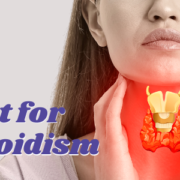10 Symptoms of Zinc Deficiency and How to Fix it
10 Symptoms Zinc Deficiency

A symptom of zinc deficiency is recurrent colds and flu.
If you experience any of the following symptoms, your zinc levels may be low:
- Recurrent colds, flu, and/or infections
- Poor appetite
- Reduced sense of taste and/or smell
- Sluggish digestion
- Slow growth and development
- Slow healing
- Acne and other skin conditions
- Infertility
- Sugar cravings
- Stress, anxiety, and depression
Zinc is Essential For Health
Often zinc is recommended when you have a cold or flu. But, besides being extremely important for the immune system, zinc plays a role in many other bodily functions. The adult body contains about 2.0 to 3.0 g of zinc, mostly stored inside your cells. Zinc’s many actions affect the health of your whole body.
Zinc Deficiencies are common
Many people are deficient in zinc. Inadequate dietary intake, increased physiological needs, or a diet high in sugar or alcohol and profuse sweating are common causes of zinc deficiency.
A Simple Taste Test
At Your Wellness Centre, we can do a simple taste test to see if you have a zinc deficiency. The test involves holding a zinc solution in your mouth for 10 seconds and assessing your taste response. The test relies on the presence of gustin, a zinc dependant enzyme. A lack of zinc reduces the activity of gustin, thus altering your taste perception.
What does Zinc do to the human body?
- Zinc protects your cells from free radical damage by providing antioxidant defence.
- Zinc supports healthy immunity
- Improves appetite and digestive function.
- Its ability to increase the healing rate of acne and wounds makes it indispensable for skin health.
- It plays a key role in blood sugar metabolism, for better blood sugar control.
- Zinc aids growth and development
- It is an important nutrient during pregnancy for both mother and baby.
- Zinc is also important for male health, fertility and sperm production, increasing sperm motility and concentration, therefore enhancing the chances of conception.
- Zinc is found in high concentrations in the hippocampus area of the brain which controls thought and memory.
- Recent research has shown zinc to be good for the brain, reducing stress and having a positive impact on mental function and mood.
Which Foods contain Zinc?
You can top up your zinc levels by increasing the intake of zinc rich foods:
Oysters are a rich source of zinc. If you are not a fan, then beef, lamb, toasted wheat germ, spinach, pumpkin seeds, nuts, dark chocolate, pork, chicken, beans, and mushrooms.
Zinc bisglycinate For Greater Absorption
If you have some of the deficiency signs described above, talk to Naturopaths at Your Wellness Centre about taking a highly absorbable zinc bisglycinate. With its enhanced cellular uptake, it increases the availability of zinc to your body. The one we recommend is also less likely to interact with other minerals, including copper, calcium, and iron. The more zinc your body can absorb, the greater benefits it will deliver in improving your health.
Take the step toward a healthier you!
Call 9879 9596 and book an appointment today!







You gave us such a clear information and suggestions, they’re very nice and very useful to us. Thanks for sharing the best information on this topic. I am very satisfied with your information.